Librarian Is My Occupation: A History of the People’s Library of Occupy Wall Street
As we’ve mentioned several times (sorry [not really]), your dear co-captains wrote a chapter in the recently-released book Informed agitation : library and information skills in social movements and beyond, edited by Melissa Morrone. This having been an enterprise with its politics in the right place, we retain the rights to what we wrote. Which makes you all a lucky bunch of pirates! Below you will find the text of our chapter, in full. Some of the other authors have also made their chapters available, and you can find links to them at the above linked website. Since it’s been over a year since we wrote the thing, we might also write some reflections on the developments of our perspectives since then.
As bicyclists, joggers, and tourists looked on in bemusement, three exhausted individuals pushed a broken-unwieldy-wooden-wagon-thing-on-two-wheels across the Williamsburg Bridge. It was July 21, 2012, a hell of a day to push something heavy through Manhattan and Brooklyn. It is impossible to know exactly what the onlookers thought of those pushing the cart, but it is likely they did not recognize that what they were watching was working group members from the Occupy Wall Street People’s Library moving the last remnants of the collection out of a storage unit and to, alas, another temporary home. It may be that three sweaty people pushing a giant wheeled crate does not make most people think of libraries, but the People’s Library had always been dogged by others’ ideas of it.
We should know. We’ve heard them all.
Zachary heeded the original call and was there on day one. Jaime, skeptical, didn’t get there for another two weeks. Writing this just over a year later, we’ve faced down riot cops, stood in rain and snow, seen our library destroyed, spoken at conferences, sued New York City, gotten to know the city’s jails and courthouses, lost a lot of sleep, and been (further) radicalized. Granted, that we were there at all implies certain political leanings. And that we have in large part participated in Occupy Wall Street as librarians suggests a certain view of our profession, both internally and as we relate to the rest of the world. Let’s call this a case study, then. We will relate the history of the Occupy Wall Street People’s Library (OWSL) as we experienced it, while interspersing this recounting with broader theoretical observations.
We certainly do not claim to speak for all librarians, or even for all of the members of OWSL, but this is our analysis of what it meant to be People’s Librarians in our limited free time while being “actual” librarians during our “work” time (though we often felt that it was the other way around).
September 17, 2011, to October 13, 2011
For two months, Occupy Wall Street (OWS) held off a paramilitary police force, a billionaire mayor, and the combined ire of the world’s biggest, baddest global corporations. And it was done with bandanas, tarps, apples, and books. But it started small, on September 17, 2011, when rabble-rousers unrolled their sleeping bags in New York City’s financial district.
It is hard to pinpoint an exact moment at which OWS exploded into something large enough for the news media to declare it was of no significance while simultaneously covering it. Perhaps it was when a video of a police officer pepper spraying young women cordoned off in orange netting went viral, maybe it was when hundreds shut down the Brooklyn Bridge, but trying to discern the exact moment is pointless. The very nature of social movements, and of protests, is their fluidity. It is impossible to truly know what will happen next. Nobody foresaw the pepper spraying going viral until it did, nor could those who marched on the Brooklyn Bridge know the impact of that march (or that they would still be going to court over it a year [and then some] later).
And the library? It started with a pile of books. Really. Maybe it was mitosis, or some other unseen process, but the pile of books kept growing. The pile became a hill, which became a mountain, which garnered the attention of a few individuals who took it upon themselves to try to keep the books dry, mark them “OWSL,” put them in boxes, and begin thinking about how to keep them safe and organized. In those early days, managing the books was haphazard, the working group was new, and just tagging the books “OWSL” was an accomplishment.
Rain was a perpetual threat, and much attention was devoted to basic protection: getting plastic tarps to cover the boxes (which the police continually confiscated), and switching out the cardboard boxes for plastic bins with lids. Access to the library was at its most open in these early days: the books were at times unsupervised, and the working group struggled just to keep fiction and nonfiction separate. If a patron was looking for a particular book or topic, it was up to them to forage through the collection. As the working group grew and the library found itself more consistently staffed, actual organization began taking place; the books were sorted into an ever increasing number of categories, and the collection began to be cataloged (a process that involved jotting down ISBN numbers on scraps of paper and inputting them into LibraryThing when an Internet connection was available [this is not the most efficient way to catalog {or the most fun}]). In this early phase, the following interaction was not atypical: “Are you the librarian?” “I am today.” “Do you have any Marx?” “We did an hour ago.”
Sunday, October 2 marks the date the working group was recognized by the General Assembly (GA). As more librarians – professional and otherwise – came to the occupation, some of those with a sense of how the occupation functioned took the step of proposing the working group to the GA. The proposal was for “formation of the People’s Library Working Group for the organization, maintenance, and promotion of the People’s Library”(NYCGA, 2011). The GA gave consensus through “up-sparkles”(1) and the Library became an official working group. This easily-reached consensus foreshadowed the love many occupiers consistently showed for the Library; even during the most contentious weeks of the GA’s existence, the Library rarely had trouble gaining consensus for its (albeit modest) proposals, receiving support from even suspected agents provocateurs.
While much of the working group came whenever they were available, a handful of occupiers became live-in librarians (the number of live-in librarians peaked during the second phase of the library). The demographic of OWSL members was varied, consisting of full-time activists, artists, retirees, college professors, poets, students, parents, punks, wandering Canadians, and professional librarians (with many fitting into several of those categories at once). About half of the regular librarians were professional librarians or archivists – those with master’s degrees, whether employed in the field or not – or in a similarly scholarly profession. Many of the drop-in librarians were also professionals, paraprofessionals, or LIS students; we had visitors from Radical Reference and the Pratt SILS program, among others. Professional or not, many ended up in the Library working group in order to have something concrete to do; the library was one of the sites where there was always work. Some of us who are professional librarians felt the same way about OWSL as we do about hewing to the profession as a whole – a need to create order, perhaps a certain curmudgeonliness, a love of old things and dry paper, as well as a desire to be useful. In those first weeks there was an atmosphere of excitement, where even cataloging seemed like a revolutionary act.
Yet this was all disrupted in the run-up to October 13.
Brookfield Properties, which owns Zuccotti Park, the location of the OWS encampment, wanted to clear the park and used the pretext of “cleaning” as a cover.(2) Working groups within OWS were divided over how to respond, with some thinking that occupiers would be able to return after the cleaning, while others declared they would not leave. It soon became evident that the prevailing sentiment was for people to stay, but for infrastructure and possessions to be removed. At this point the active collection was between one and two thousand books, and the entire day and night (when the part of the collection still in the park had to be evacuated to an “undisclosed location” [an apartment in New Jersey]) saw the working group furiously acting to get the books and infrastructure to safety before the expected “cleaning.”
It took the working group nearly 24 hours to get the books out, and, as members of the working group stood – exhausted – in the park on the morning of October 14, waiting to see what would happen, we felt the joy from the announcement that Brookfield had backed down…but also the recognition that we would have to move all of the books back into the park.
We did not yet realize that moving books was to soon become a major activity for OWSL.
Some Thoughts on Guerrilla Librarianship
Our fellow librarian Mandy Henk wrote in her blog post “A People’s Digital Library and Prefigurative Politics”:
The Occupy movement, and the People’s Library, are, in part, prefigurative movements. That is, they are attempts to create and embody the kind of society we want to see….We can’t change the world, rebuild it into a place of justice and equity, if we can’t reflect the values we support in our internal dynamics and operations (Henk, 2011).
She was writing about digital resources and their vendors, but her point is extendable to OWS, as well as to the many other sites of protest that people have created worldwide in the last few years: the means of our protest directly reflects the world we want to live in. We carry with us the good parts of the current world, try to leave behind the parts that don’t work, and envision and create the parts we don’t already have. For the occupation in New York City, as well as for our predecessor at Puerta del Sol in Madrid, Spain, and for the occupations across the world that followed us, having a library was an instance of bringing along the best of the world we already inhabit.
Librarianship and library theory is a rich source for prefigurative politics. As libraries and librarians step out of their dusty ways of being, we find that many mainstream practices in libraries are well in line with radical undertakings, though we at OWLS are perhaps more sincere in our praxis. As Jaime said at the American Library Association’s 2012 Midwinter Meeting:
The Library Working Group works on consensus. When I was in library school, we talked about horizontal structures and consensus as a cutting edge way of organizing library work and staff…The meaning of “consensus” used in my library school classroom and the meaning of it at the Occupation and in radical politics generally are not the same. For us, consensus requires that nearly everyone support a decision…Degreed librarians have no more weight in making decisions than an 18-year-old college student, an underemployed actress, or a crusty traveling kid (Fagin, Henk, Loeb, Norton & Taylor, 2012).
Consensus as taught in that library school course was definitely not what was used at the occupation. Horizontal organization was all the rage in that course, the flattening and (somewhat) equalizing of power and reporting structures in the library-as-workplace. But it was never a complete flattening – there were still bosses and supervisors; people with more power (and a higher salary) and people with less; and class-like divisions between types of workers such as administrators, librarians, paraprofessionals, and physical plant staff. At the occupation, temporary moments of authority and leadership were created by recognition of knowledge, skill, or ability held by one person that others might not have. Those moments fluctuate – the “real” librarian’s knowledge and experience of cataloging is important in one instance, and another person’s ability to run a generator is essential the next, and both are valuable. In a flattened system, those points of leadership are allowed to happen; even if a conventional system has had some of its levels removed, it remains in important ways vertical. Aside from whatever structural benefit a horizontal system may contribute to an institution, the human cost of lack of control must also always be kept in mind – we, as human beings, should be the sole power responsible for the conditions of our labor. The traditional library allows for only so much autogestion; the People’s Library ran on nothing but. Working group members were (and remain) responsible only to ourselves, our fellow librarians, and our patrons.
Drawing again from the edges of library theory, OWSL built on some of the practices of existing radical librarianship. Radical Reference was formed to provide reference services at the exact point of their patrons’ needs – on the ground at protests. This is the bleeding edge of the “embedded” librarian, who in a university library might dare to keep her reference desk in departmental offices instead of in the library proper. If we are to “save the time of the reader,” (a central point of a librarian’s responsibility), then a park full of protestors looking to brush up on their theoretical underpinnings (or just looking for some fiction) should have those resources at their fingertips.
Visitors to OWS were both surprised and then comforted by the presence of the Library. It was perhaps the most normal part of the occupation, something recognizable from the regular world, a concept and a space that hardly anyone struggled to understand. So many features of the People’s Library were the same – or nearly so – as those at any public, school, or college library, from the children’s section to a reference collection, the visiting authors, the poetry readings, and the occasional pencil skirt or cardigan or tie on a bespectacled librarian. But the surprise always preceded the sense of familiarity, and the farther away on the political spectrum a visitor was, the more surprised they were.
OWS was supposed to be a bunch of dirty stupid hippies who needed a shower and a haircut (haven’t we moved on from the late ’60s yet?), to get a job, to grow up and be responsible for ourselves (never mind the unemployment rate or the cost of tuition). But then there was this organized collection of books – serious books, well-known books, books about anything and everything, books with opposing viewpoints, popular fiction, books one might have read in school – staffed by articulate and knowledgeable people, some of whom have master’s degrees and maybe even a job in a “real library,” (and over there, a kitchen with people wearing rubber gloves and hairnets, like in a school cafeteria; and past that, basic medicine being practiced by people with certifications). And then, when the Library, along with everything else, was thrown in the trash, people who didn’t much care about any of the other horrid things that happened to the occupation (before that or since) were outraged at the brazen and callous actions of the mayor’s office, NYPD, city sanitation, and Brookfield. And surprisingly (not so surprising), until media from Twitter to cable news lit up with the story of it, all those people and organizations probably thought they’d get away with it.
And why wouldn’t they think that? It isn’t hard to make the jump from the quick and violent destruction of the People’s Library to the slow burn of both anti-intellectual conservatism and neoliberal privatization destroying conventional libraries. The creation of the camp at Zuccotti Park (called Liberty Square by the occupiers), library included, was, while often ad hoc, built prefiguratively; we created there the things we value, while trying to leave out the things that harm us. Free access to knowledge was in, while vertical and authoritarian organizing structures were out. Given that we were librarians, our general principles of consent and community, and our professional positions, which include equal access, privacy, and anti-censorship (which are fairly mainstream in the library world; see the ALA’s statements (ALA, 2011)) all supported the creation and curation of the People’s Library. It is exactly because those principles are the bedrock of libraries as we know them that libraries from OWSL, to every little branch of every little public library, to major public and private research libraries are being dismantled.
More on that later.
October 14, 2011, to November 15, 2011 (1 a.m. [give or take 10 minutes])
Spurred by the emotions (good and bad [mostly good]) coming out of Brookfield’s retreat, the librarians realized that something had to change. There had been precious little discussion or coordinated thought regarding what the library was really doing, or what it really was. The library was swelling, not by fives and tens but by hundreds. People donated dozens of books at a time, authors dropped off boxes, publishers sent cases, and the working group did its best to keep pace, trying to categorize and catalog as items arrived. This was the time when the Library began to better serve the patrons: stability of location and systems for processing the collection allowed the librarians to know what was in the collection and enabled them to provide reference services. There were a few thousand books, and while they were not filed under Dewey or LoC subject headings, they were sorted and cared for by a devoted and knowledgeable team of librarians.
The library consisted entirely of donations. Every book in the collection came from either an individual or a publisher (most came from individuals). The library functioned on the honor system: anybody could take any book (except for those in the reference collection [although asking people not to remove the copy of Steal This Book was rather foolish]), and patrons were trusted to return books or to lend them to a friend and in this way keep the library flowing. After all, wherever there was a book marked “OWSL,” the library was alive. The collection included everything from Milton Friedman to Karl Marx, from Ann Coulter to Al Franken, from the Constitution to T.A.Z., from rare artist books to Dr. Seuss, and from Mayor Bloomberg’s autobiography to books about inspirational political figures. The library was settling into a steady track of sorts; it would open in the morning, things would be straightened up as occupiers awoke, new books would be processed and shelved, patrons would be assisted, and so forth.
The daily activity of keeping the library open and functioning was a constant source of pressure for the working group, particularly as members sought to engage in other activities. When members of the working group were in the library, they were overwhelmed with its demands; it was not that the working group was uninterested in other matters, it was simply that they were too preoccupied with the tasks at hand to think at length about the theoretical implications of the occupation. On the plus side, this meant that the working group was largely (though not completely) spared from inter-group ideological squabbling.
We outlasted the police telling us that we couldn’t use tarps (even clear tarps) to cover the books when it rained (because “there might be a bomb” under our tarps). We weathered Snowtober, the unseasonable snowstorm on October 29. We got on board with town planning (yes, there was a town planning working group), who were trying to figure out how to best use the limited space in the growing camp. We had a generator providing electricity (until the police took it [after which we got another {which the police took}]), half a dozen laptops and wireless Internet, lights, chairs, and thousands of books. Weekends featured a poetry assembly and film screenings; we were visited by authors, we provided a relatively quiet (meaning you only had to kind of yell to be heard) spot for occupiers and visitors to read and think, and we updated our catalog on LibraryThing on an almost daily basis.(3) We functioned like a traditional library, only with better air circulation, a less reliable roof, and a distinct lack of walls (real and metaphorical).
In early November, once the police moratorium on tents eased (and after they’d absconded with out first attempt to put one up [and the second]), Patti Smith kindly sent us a big grey arc that gave us two walls and a roof, with openings at either end. Inside the tent, the library looked even more like a real library – there were even shelves. The walls were covered in original posters brought to the occupation and left behind for display; the donation bin was overflowing; the work table was cluttered with librarians cataloging books; and the tent was filled with the sounds of laughter, song, and impassioned arguing. To look at the tent in this time was to think that OWS’s future was promising, and the park was filled with optimistic talk about weathering the winter.
Alas, that was not the storm that came.
The Library as Place and Space
Anybody who has ever helped a bibliophile move, pushed a book truck, or walked around carrying a stack of books knows two things: books are heavy, and books take up space. The first can be handled by a sturdy shelf. The second is of greater import. Books come in thousands of different shapes and sizes, and their space requirements vary accordingly. A problem arises once the quantity of books requires more area than can be casually given over to them.
Throughout history, libraries have sought many solutions to the problems presented by large quantities of books: from floors of densely packed shelves to compact shelving, from providing aisles for browsing to cramped closed stacks into which only the library staff may go, and on to the current trend of having physical books off-site while potentially granting access to digital versions of some texts. All of this is to say that libraries require space. Real physical space. The New York Public Library needs space for its collection, and so does OWSL. If this space ceases to be an accessible reading room and becomes a storage unit, the library vanishes except as an idea.
But this formulation is simplistic. While there is some merit in describing a library as a space that houses books, it fails to recognize the other aspects of libraries. To deploy a horrible poker metaphor (we think this is a poker metaphor; it might just be a cards metaphor [we do not play poker {really}]): libraries hold a pair of aces. One ace by itself is potentially useful, but not really; it’s the pair that has value. The first ace is what has been described thus far: space – the real-world physical space that is required and occupied by the library. Every time a person walks through a library’s door, or picks a book off the shelf, they are encountering the library as space. And when a library is closed, or books are sent off-site, the library space is impacted. But the other ace, which is of equal if not greater import, goes beyond simply thinking of the physical locale: the library as place.
Some of the frustration directed at a definition of a library as “a space filled with books” is that it misses out on the other things offered by a library, and it misses out on the larger meaning of a library. Libraries (particularly public libraries) present a rather unique place in contemporary capitalist society: somewhere a person can go regardless of employment status, race, gender, class, disability status, or age, and have access to a variety of important resources without having to pay for them (though tax dollars are a form of paying). Furthermore, the offerings at a library appeal to a variety of needs: access to books (for those with little disposal income, books can be expensive), access to a safe space, access to computers (something frequently taken for granted), access to the Internet (see previous parenthetical), and much more than can easily be listed here (we have to stick to a word limit). While some of the services offered by libraries seem to be offered elsewhere (think of corporate bookstores with inviting seats spread throughout), the factor that sets libraries apart – vitally – is that they are public spaces. Or to use a somewhat antiquated term, libraries function as commons.
We purport that the value of libraries exists not only in the books they lend, but in the commons that they represent. While public parks offer citizens access to green areas (ideally), libraries offer citizens access to intellectual areas (and an inside location). The idea of libraries, as places, is that people should have access to informational resources, and though this undergirds the fact that a library takes up physical space, it can go unnoticed if all that is seen is the physical space. When people thinking about libraries think first of books, they are taking a logical step; however, it falls to librarians to remind patrons that the library represents much more. Access to a library is important, not simply because it provides access to information, but because access to a library represents access to an information commons as well as a belief that people have a right to such access. Thus a cut in library hours is as problematic (if not more so) than a cut in the acquisitions budget, and libraries that are closed represent commons from which the public has been driven.
OWSL always had to hold both aces while trying to construct a full hand. When visitors to OWSL expressed delight at the sight of the library, they were reacting to the manner in which OWSL reminded them of the place that a library represents. After all, OWSL did not take up much physical space, but the presence of an information commons being set up in the heart of a – already-enclosed – private park demonstrated that a library cannot simply be a physical space; it must resonate with a societal and mental place.
Libraries are rather odd in a society obsessed with free market ideologies. In a world where everything has a price and where we are constantly told that only the free market can solve the world’s problems (even if the free market created many of these problems [and free for whom?{but we digress}]), a library is one of the few spots where people can enter for free, access materials for free, and stay without being expected to buy anything. Libraries frequently get caught up in the matter of physical space – especially now when e-readers call into question how much space is really needed – and it is an important consideration, but unless libraries (and librarians) can make a compelling case based out of both space and place, then they are stuck holding just one ace, when really they have a pair.
Showing what libraries fully represent empowers us to fight for not just the physical spot but the mental real estate as well, and it further allows us to name our enemy. These are not budget cuts we face, but enclosure. And in what ways have people sought to fight enclosure in the past? Why, through occupying the commons, of course!
November 15, 2011 (2 a.m. [give or take 10 minutes])
As Jaime recalls:
At 12:53 am on [November] 15th…I got a text message from one of the half dozen live-in librarians, saying, “Police are here.” … By ten after 1 [a friend in Jail Support] confirmed that it was for real this time. I rolled out of bed, and started calling and texting the other librarians…. I got on a train, and got to the financial district at 2 am.
Even making it in that quickly, I couldn’t get within two or three blocks of the park. There were barricades and cops – whom Mayor Bloomberg has since called his “private army” – on every street. As we quickly learned, there was a general media blackout. Reporters were not allowed within sight or hearing of the park, supposedly for their “safety,” which is belied by the fact that news helicopters were also grounded.
It hardly mattered what our emergency plan had been. Of the five librarians who were inside the park that night, two elected to stay, and the three others were only able to remove what they could carry in one trip….
The two librarians who stayed ended up being beaten, pepper sprayed, and arrested with more than 150 other Occupiers…. Within a couple hours, the library, along with the rest of the camp, had been torn down, loaded into city Sanitation dump trucks, and carted away. In video from that night you can see tents being taken down with chainsaws.
As the sun came up, those of us still free gathered in Foley Square… [W]orking groups and friends tried to figure out who was missing. Around 8 am we heard that the park was cleared and we could go in. A couple of us walked back down, where we met up with a handful of other librarians. We put the books we had on our person back on the bench where the library had been just a few hours earlier and declared the People’s Library open once again. We were there only a half hour or so before the cops completely barricaded the place off and kicked us all out. For the rest of the day, the park was closed off, the mayor and the police department directly ignoring a court order to allow access to the park.
(Fagin et al, 2012)
Since then, there have been several abortive attempts to occupy new spaces, the working group’s membership has dwindled, and the library moved from an accessible collection to boxes in storage – a problem that was only exacerbated once OWS lost its official storage space, forcing us to relocate the books to an 8×10 storage unit. OWSL tried to make appearances at major (and minor) Occupy happenings. The mic check of “The People’s Library is open” was consistently met with cheers, yet those who came up to the library at such events came with lamentations over the loss of the library proper rather than with book donations.
Where once patrons had several thousand organized books to browse through, OWSL now struggled to bring more than a few hundred to any event. Indeed, much of the attrition in the working group was a result of members wanting to actively participate in events rather than perpetually guarding and lugging crates of books. Responding to this challenge, a working group member even saw fit to construct a magnificent “mobile library” (a sort of shelved cart that could be rolled) but the logistics of using it resulted in the cart spending most of its time in storage (fortuitous, seeing as the front wheels broke off on its first prolonged outing [“prolonged” means two blocks {it was terrible (and awesome), we almost died (really), see the beginning of this chapter}]).
The working group survived, indeed survives, yet its activity had, and has, changed. Presenting at ALA’s 2012 Midwinter conference, several members of the working group spoke at length about the ways in which the daily tasks associated with staffing the People’s Library were not unlike those performed at a more traditional library, but these aforementioned functions have largely ceased. While the People’s Library has found some temporary homes, the operative word is “temporary.”
The history of the Occupy Wall Street People’s Library runs parallel with the history of Occupy Wall Street: it arrived unexpectedly, triggering excitement and interest amongst those who had not anticipated such an occurrence, and now it continues, less visibly, driven largely by those who recognize that resistance is not something you can rely on others to do.
You have to do it yourself.
Cassandra and King Canute Apply for Library Cards
As the occupation in Zuccotti Park drew more attention, it was common to hear people declare, “they even have a library.” The library was – generally – spared the ridicule that was directed at other working groups. It is doubtless that would-be naysayers’ arguments were undermined by the number of “actual librarians” participating in the working group. There was a sense that this was a “real” library.
People like libraries and tend to think positively of them even if they do not personally frequent them, and people find the destruction of libraries abhorrent. Thus, in the outcry following the raid on Zuccotti, amongst the most frequent comments were those mourning the destruction of the library. The volume of these denunciations was of sufficient force that the Mayor’s office even felt the need to tweet an image of supposedly safe books(NYCMayorsOffice). Sadly, this image did satisfy some people, even as the working group realized how much was really gone.
The larger point is this: the destruction of the People’s Library was shocking for a very specific reason – it was not subtle. The People’s Library was literally thrown in the trash. This was too frank an image for those who have a positive view of libraries and books. People found it disturbing to think of a metropolitan police force acting on orders from the mayor – in a democracy – destroying books.
The grim irony was that it was nothing new. It was just that usually politicians are a bit less open when they are destroying libraries.
Despite “The Protestor” being named Time magazine’s person of the year in 2011 (the accompanying article mentioned OWSL), The Village Voice put out a different sort of end-of-year list (Village Voice) : an enumeration of the most powerless New Yorkers. “The Occupy Wall Street Crust Punks” came in 40th, and beating them by 6 points of powerlessness was the “Occupy Wall Street ‘People’s Library’” (34th). This is what The Village Voice had to say about the library:
One of the most fun aspects of Zuccotti Park this fall was the “People’s Library,” a wide selection of books that sparked free-wheeling discussions. Volunteer librarians (like Bill Scott [who was on the cover]) guarded it with professional care. Although they protected it from Mayor Bloomberg’s first threatened raid on the park (by taking the books away via Zipcar to an “undisclosed location” [New Jersey]), the librarians were rendered utterly powerless after the city launched its surprise raid and returned the collection looking like shit. (Village Voice)
Many members of the working group felt indignant about being called powerless. Yet the really significant thing about the list was not that OWSL came in at 34; what was significant was who was ranked 13th. Can you guess? The librarians of the New York Public Library (you guessed that, didn’t you?), about whom The Village Voice wrote:
Perhaps the only people less powerful in the library system than the homeless patrons are the librarians themselves. Gone are the days when a master’s degree in library science and a job in the nation’s largest public library system meant that you would spend your days helping writers to research and mesmerizing people with your encyclopedic knowledge of the Dewey decimal system. Today’s NYPL librarian needs to be a social worker, a specialist at dealing with the homeless and the severely mentally ill, a computer tech wiz at solving people’s Wi-Fi problems and a job (and suicide-prevention) counselor helping people look for jobs that simply don’t exist… (Village Voice).
The quote goes on, but it does not suddenly become positive.
The moral of the story is that librarians in New York City are powerless.
But what does NYPL’s appearance in 13th place mean in a broader context? Surely, NYPL is one of the most respected library systems in the country, if not the world. If the NYPL librarians are powerless, then what about those in Chicago? Or California? Texas? Missouri? Or [insert the name of the state you live in]? Librarians have organized; they have fought back; they have rallied; they have hugged their libraries; they have organized petition drives; they have held read-ins; and they have seen budgets cut, staffing disappear, and hours slashed. This is not just a siege mentality. It was not the American Library Association decrying the powerlessness of librarians, it was The Village Voice, and the library section on The Huffington Post is called “Libraries in Crisis.” Not “Libraries in Transition” or “Libraries Evolve,” or “Libraries are Awesome.” Libraries, we are told, are in crisis (with article titles like “More Bad News for Librarians” and “Can the American Library Survive?”). A recent New York Times “Room for Debate” (27 December 2012) was titled “Do We Still Need Libraries?” as if there actually was room for debate on this topic.
After the raid on the park, we heard from many who were shocked by what had happened, but what Mayor Bloomberg did to OWSL is not altogether different from what he (and other mayors across the country) have done to other libraries. The main difference is that generally they do not literally throw the books into garbage trucks. When a public library has to cut its hours or its acquisition budget or its staffing, it does not provoke the same visceral reaction that people have to seeing books being thrown into a dumpster. Yet the thousand cuts are every bit as bad as the brutal boot kick, if not worse, as they are only visible if you are looking for them. As might be predicted for a sector “in crisis,” the discussion around libraries tends to be about cutting, about how deep to cut, about where to cut, about who to cut, all bolstered by the question of “Do we still need libraries?” And those librarians – pesky public workers (some of whom – gasp – are in unions [the devils]) – are just another group trying desperately to do more with less. If librarians are feeling powerless, it is with good reason.
So, why did the NYPL librarians come in 13th and the OWSL librarians come in 34th? After all (at least as of this writing), there are still NYPL librarians trying to fight the cuts, while OWSL is still trying to recover from being cut in half. Perhaps it has to do with the librarians’ view of their foes. Most public library systems seek to negotiate with those doing the cutting; they accept that they must be slashed but try to go for a two-inch gash rather than a five-inch gouge, figuring that they will be able to cope with the unsightly scar that is left behind. OWSL knew that it had no negotiating ability but refused to accept the power of those seeking to destroy them. New York City did not cut our budget; they cut our throat, but we got back up again because OWS is the bastard creation of the money-mad Dr. Frankenstein. We weren’t getting paid in the first place.
People are powerless precisely in proportion to their willingness to sit quietly and think positive thoughts. Librarians are powerless to the extent to which they silently read the memos saying that there are cuts coming, they are powerless to the extent that they hold read-ins at the library instead of sit-ins at the mayor’s office, they are powerless to the extent that they allow a mayor to make cuts and then allow that same individual to attend a gala at that same library. A common organizing cry amongst librarians is “we will not be shushed,” but then we are shushed. It is past time to get loud. And if we wish to keep our reading rooms quiet and civil, then perhaps we need to take this noise to those who are trying to shush us.
Unless librarians are willing to stand up and genuinely fight, there is a chance that the only libraries around will be the renegade ones set up in public parks. But at least that way the librarians will be 21 positions less powerless.(4)
Conclusion
The Occupy Wall Street People’s Library’s life has been characterized by its heyday, the shouts of mayday, the thrill of May Day, and the frequent grumbling of oy vey, and just like any activist construction or incipient institution, it has had highs and more than its fair share of lows.
When patrons would ask members of the working group, “So how does this work, do I bring the book back?” they were told that they could certainly return the book so that others could use it, or they could donate some of their own, but a favorite answer amongst members of the working group was to tell those borrowing books to keep passing the book along, thus allowing the library to continue spreading. And so it is, that today, on any bookshelf that holds a book stamped with the library logo or bearing the letters “OWSL” on the edge, it is there that the library lives on in spirit.
But as for the actual library?
It’s waiting to return.
But it needs you for that.
So…meet us later for some civil disobedience? Don’t worry, you can wear a cardigan.
Epilogue
After Zuccotti was purged, and after members of the working group recovered what they could from the sanitation garage (about 20% of the collection [a portion of which was unusable {and all of which spent the next year or so in boxes in Jaime’s apartment}]), the working group started tossing around ideas for legal action. The task seemed rather daunting; luckily, we were approached by Norman Siegel, former head of the New York Civil Liberties Union, and his colleagues, who wanted to represent the library pro bono. After a press conference at which we displayed the destroyed books, we filed a lawsuit against the city, mayor Michael Bloomberg, police commissioner Ray Kelly, sanitation commissioner John Doherty, and unidentified city employees, in federal court on May 24, 2012.
The saying is wrong – you can in fact fight city hall, but it takes lawyers who know what they’re doing, as well as patience and fortitude (five points if you get the reference). The city’s actions against the Library were so egregious that we were certain that if we held fast we’d eventually win. We think the city knew it, too. They offered us a settlement early on, which we rejected as insufficient. In August the city started trying to pass the blame to Brookfield (the company that owns Zuccotti), naming them as a third-party defendant; the city knew someone would have to take the blame, and they didn’t want it to be them.
Finally, on April 9, 2013, almost a year and a half after the eviction, we received a settlement offer that perfectly matched our demand. The city gave us the $47,000 at which we valued our destroyed books and equipment; they also paid out lawyers’ fees (two other groups from the occupation [Times Up! and Global Revolution] had brought similar suits over their lost equipment, and they were also given the amounts they’d demanded, plus lawyers’ fees). We suspect the city was trying to avoid going to trial, sure of bad publicity, questionable information coming to light, and an eventual loss.
It was never about the money. We asked for money because that’s the language spoken by the government and the court system. For us, it was about getting an admission of wrongdoing from the city. And we got that, if expressed in the formal, wishy-washy language of lawsuit settlements (we had refused the previous settlement offers that had not included an admission of responsibility).
And now, writing in April, 2013, we are just about done with this chapter of the library’s history. We no longer have the capacity to rebuild the People’s Library as it was, besides which we’d probably find our collection in the garbage again and ourselves in jail in short order if we tried. We plan to use the settlement money to empower other groups that do the kind of library and education work we did. While many of the librarians continue to do this type of work in other venues, both in their professional lives when possible, and also in our “spare time,” (though we still aren’t quite sure which is real life and which is the thing we do on the side).
The books recovered from the sanitation garage will go back into circulation, now that they are no longer needed as evidence, and the letters “OWSL” written on the edges of the text will always stand as evidence of what the library once was.
And what it can be again.
[Here is another epilogue: Librarian is Still My Occupation]
End Notes:
(1) A note on Liberty Square dialects – the general term for the finger-wiggling motion used to express opinions in meetings is “twinkles”; Library, however, has always used “sparkles.” At this point, no one can remember how or why this divergence happened, but it probably reflects the fact that the librarians were often too busy to leave the library.
(2) “Cleaning” is a well-worn repression tactic, as is labeling protestors “dirty.”
(3) The catalog, at <http://www.librarything.com/catalog/OWSLibrary/yourlibrary> contains every book ever accessioned by the library, including post-11/15/11 volumes.
(4) The above several paragraphs are adapted from remarks given at the ALA 2012 Midwinter conference in Dallas, TX; see Fagin et al, 2012.
Bibliography:
Adbusters. (2011, July 13). #OCCUPYWALLSTREET: A Shift in Revolutionary Tactics. [Blog post.] Retrieved from http://www.adbusters.org/blogs/adbusters- blog/occupywallstreet.html
ALA. (2011, November 17). ALA Alarmed at Seizure of Occupy Wall Street Library, Loss of Irreplaceable Material. [Press release.] Retrieved from http://www.ala.org/news/pr?id=8568
Fagin, B., Henk, M., Loeb, Z., Norton, D. & Taylor, J. (2012, January 21) A Library Occupies Occupy Wall Street. [Presentation at ALA Midwinter 2012; text also available at http://peopleslibrary.wordpress.com/2012/01/24/peoples-library- presentation-at-ala-midwinter/ ]
Henk, M. (2011, December 8). A People’s Digital Library and Prefigurative Politics [part 2]. Retrieved from http://peopleslibrary.wordpress.com/2011/12/08/a- peoples-digital-library-and-prefigurative-politics-2/
NYCGA. (2011, October 2). NYCGA Minutes 10/2/2011, 7:30PM. Retrieved from http://www.nycga.net/2011/10/02/308/
NYCMayorsOffice. (2011, November 15). Property from #Zuccotti. [Tweet.] Retrieved from http://twitter.yfrog.com/nzdr7ndj
The Village Voice. (2012, January 11-17). 100 Most Powerless New Yorkers. Vol. LVII, no. 2. Retrieved from http://www.villagevoice.com/2012-01-11/news/100-most- powerless-new-yorkers/
[Image Note – The Background Image of “Peoples Library Occupy Wall Street 2011 Shankbone” was taken by David Shankbone, it was uploaded to wikipedia under a creative commons license; it was combined with an image of books destroyed by the NYPD by the Luddbrarian]


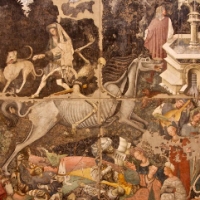
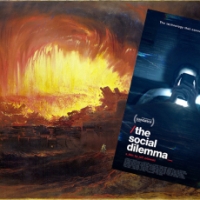
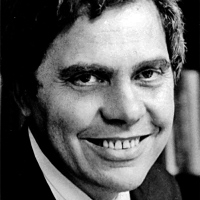
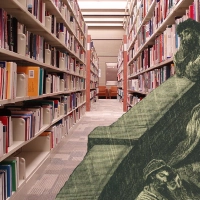

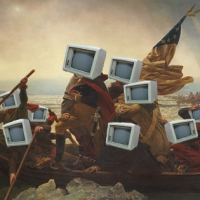
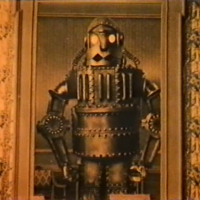


Pingback: On the need for librarians to speak out… | Radical Librarian Collective
Pingback: Librarian is Still My Occupation – Another Epilogue | LibrarianShipwreck
Pingback: Make Your Library the Protest | LibrarianShipwreck
Pingback: NYPL’s “Central Library” Plan goes Not as Planned | LibrarianShipwreck
Pingback: Modeling a Different World – The Library and PreFigurative Activism | LibrarianShipwreck
Pingback: If You Want to See the Sharing Economy…Go to the Library | LibrarianShipwreck
Now we are talking. Glad to see this kind of activity around Wall Street
Pingback: The Laboratory or The Library? | LibrarianShipwreck
Pingback: Read Banned Books – Support Your Library | LibrarianShipwreck
Pingback: Two Years of Steadily Sinking | LibrarianShipwreck
Pingback: Where Are They Now? The People’s Library Today | LibrarianShipwreck
Pingback: “Walking Makes the Road” and the Library | LibrarianShipwreck
Pingback: Treat Your Personal Library…Like a Library | LibrarianShipwreck
Pingback: Essay Contributors – Informed Agitation
Pingback: Librarian Was My Occupation – Remembering the the People’s Library of Occupy Wall Street | LibrarianShipwreck